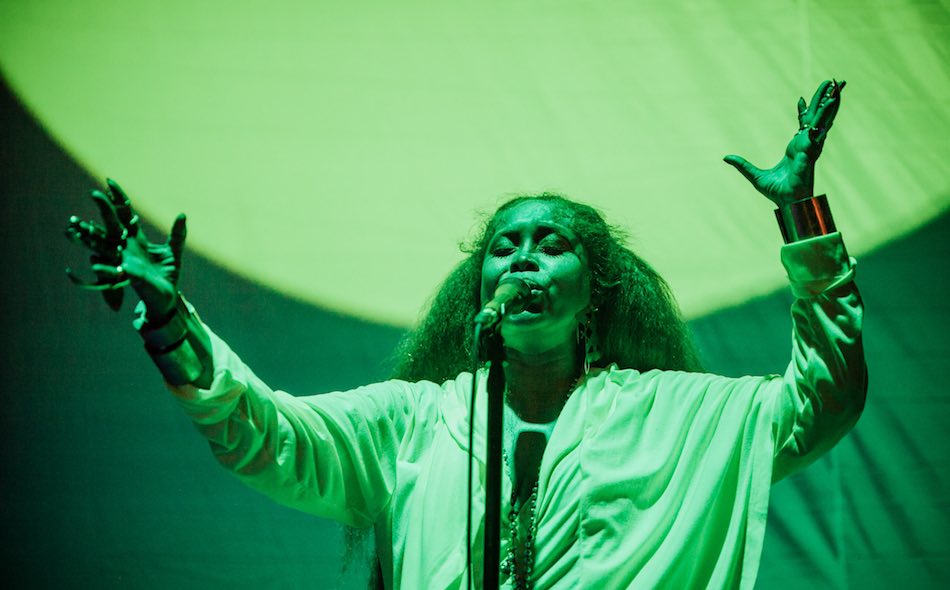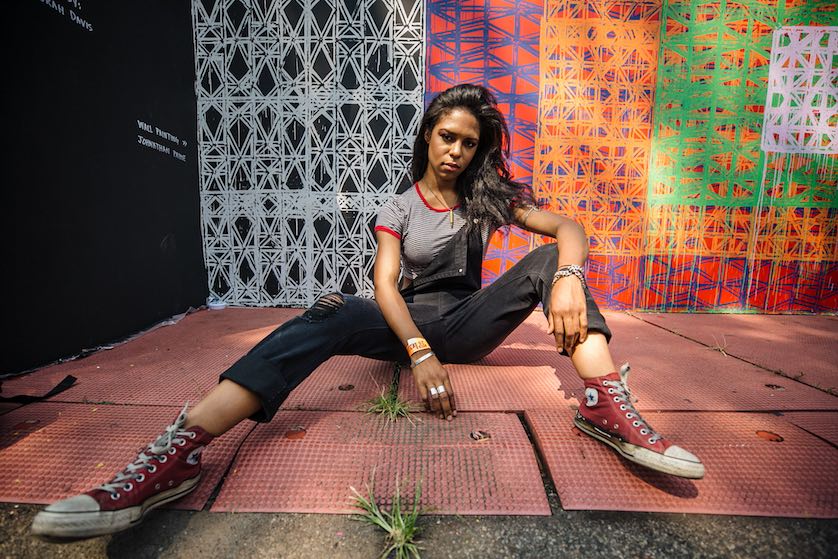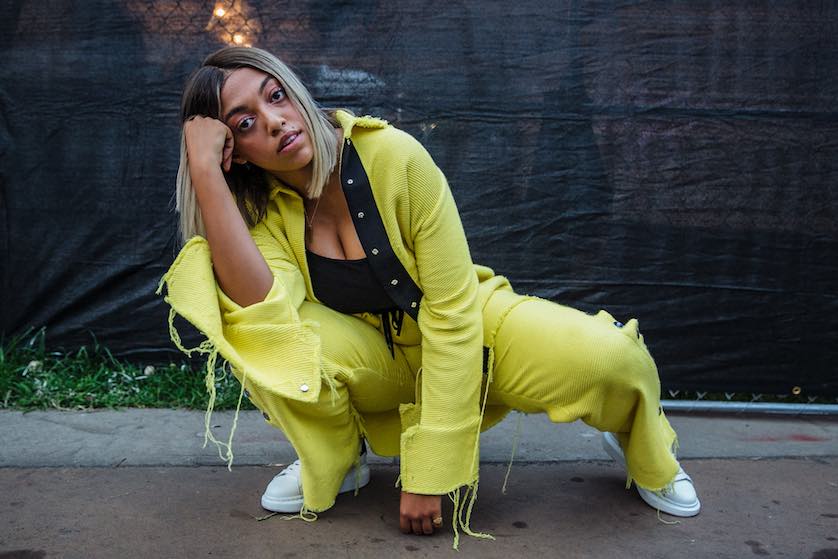
Afropunk is beautiful. Afropunk is beautiful because we are told it is. Whenever it reaches that time in August where Brooklyn goes full-tilt black festival season, the internet becomes a wash of gorgeous humans serving looks, body, big hair and a cavalcade of T-shirts littered with political statements. Over the years, Afropunk has gone from being an underground haunt for the alternative music scene to becoming an international social media phenomenon: a multi-national showcase of the grand, black, and spectral.
I first attended Afropunk in 2007, two years after the festival premiered, still hot on the heels of the James Spooner documentary that cultivated the movement. A lot of what I remember from the festival was literally underground—in basements and dive bars; it was my opportunity to turn the tables on my non-black punk-loving comrades, introducing them to the world as I imagined I lived it in my mind, filled with brown girl burlesque shows and, as one white ally who attended with me mentioned, “the best smelling mosh pits you’ll ever find.”

Afropunk isn’t that anymore. When I attended the music fest this past weekend, it was as obvious to me as it is to everyone else that what’s “Afropunk” has become a commodity, part of a juggernaut franchise where Gen-Z’s play their camera angles for photographers from fashion outlets—W and Vogue. But in all the overdone newness of money, fashion and hype, I do not mourn the loss of old Afropunk, I celebrate its perpetual renaissance. Afropunk isn’t the punk it used to be, but the punk is still there. Afropunk is revolutionary, letting the ferocity and individuality of black women take the spotlight, from stage to scene.
Nearly every act at Afropunk Brooklyn this year prominently featured women and femmes as musicians or headliners. “I think [punk] culture is changing and it always takes a while for things to rise up to the top. I think what we’re seeing now started with Soulja Boy doing the low-fi thing and now really just black people being credited for what they started,” said rock guitarist Troi Irons, who performed with Los Angeles rapper Duckwrth. A solo-act in her own right, Troi’s entirely self-produced first album ANTIHERO debuts Sept. 14. “I mean, you see people of all colors and shapes beginning to strengthen and start their own stuff. I just love when I see women taking control.”
A veteran of Afropunk London and Paris, U.K. artist Mahalia’s Brooklyn show was her first U.S. performance. Growing up around the scene of historically punk rock festivals—like Reading and Leeds—Mahalia is no stranger to transformation. “I feel like if we dwell too much on what ‘punk’ is… that is just going to keep changing. For me, we are still in a male-dominated industry, so seeing women come out on stage is amazing, but seeing black women come out on stage, I feel like that is what ‘Afropunk’ is.”

Troi and Mahalia’s Afropunk Brooklyn debuts were just two of the many acts either featuring or fronted by black women this year, in a lineup that included Adeline, Ibeyi, GabSoul, Jessie Reyez, Chanese Elife, Jamila Woods, H.E.R. and The Internet.
“It is because of Afropunk I have a career today,” said Janelle Monae near the end of her set on the Brooklyn main stage. Her sentiments were echoed by Afropunk high-priestess Erykah Badu, who closed out the two-day event with her piercing vocals and signature free-thought.
“I like Afropunk because it is a place for people like us,” she said. “We are prototype us … We don’t have to be anything because we are already everything: ‘Us.’”
If what’s punk is resistance, Afropunk’s edge comes from a version of punk that is femme, that is invested in femininity across the spectrum, and is repping black women aritsts hardcore.
—
Editor's note: Shayla Lawson is the author of 'I Think I'm Ready to See Frank Ocean' and the forthcoming 'Live Tonight, Ms. Diana Ross' (Harper Perennial 2020). She has written for ESPN and Salon.












